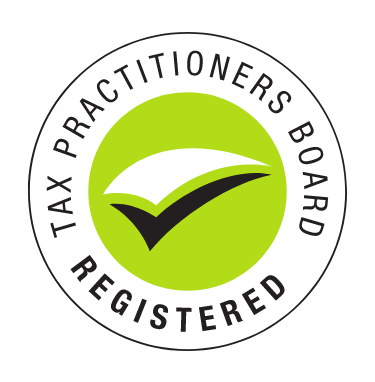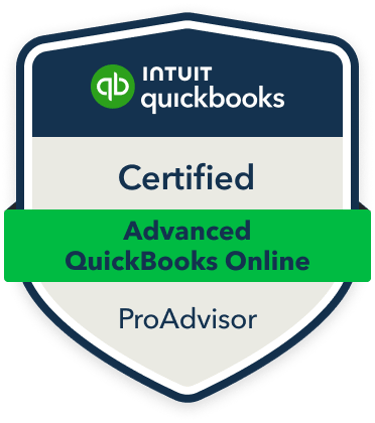Proposed Immediate Asset Write-Off: What Small Businesses Need to Know About Tax Reform
👉 Major tax reform is coming for small businesses. Learn how immediate asset write-off could boost your cash flow and what to do to prepare.


The Australian business landscape is about to shift significantly. This week, the Productivity Commission will release recommendations that could transform how your business claims tax deductions on new equipment, technology, and other capital investments.
If you're a small business owner wondering whether to invest in that new piece of equipment or technology upgrade, these upcoming changes could save you thousands in tax—but only if you understand how they work.
What's Actually Changing?
Currently, when your business buys expensive equipment (like machinery, vehicles, or IT systems), you can't claim the full cost as a tax deduction in the first year. Instead, you have to spread that deduction over several years through depreciation—sometimes up to 10 years.
The Productivity Commission is recommending a shift toward immediate expensing for certain types of business investments. This means you could potentially claim the full cost of qualifying assets as a tax deduction in the year you purchase them.
Real-World Example
Sarah owns a bakery and needs a new $50,000 commercial oven. Under current rules, she might depreciate this over 10 years, claiming $5,000 per year. Under the proposed changes, she could potentially claim the full $50,000 in year one—saving significant tax upfront.
Why This Matters for Your Business
This isn't just about tax savings—it's about cash flow and growth opportunities.
Immediate Benefits:
Better cash flow: Get your tax savings upfront when you need them most
Easier decision-making: Clearer return on investment calculations
Competitive advantage: Faster ability to upgrade and modernise
Simplified bookkeeping: Less complex depreciation schedules to manage
Learning from Recent Experience
We've actually seen this before. During COVID-19, the Morrison Government introduced temporary full expensing for businesses with turnover under $5 billion. This policy:
Applied to over 99% of Australian businesses
Covered approximately $320 billion worth of investment
Cost far less than initially forecast ($7.1 billion over 11 years instead of the projected $31.6 billion over four years)
The lesson? When businesses can claim immediate deductions, they invest more, and the economy benefits.
What We Don't Know Yet (And What to Watch For)
The Productivity Commission is being strategic about implementation. Not every business or investment type will qualify for immediate expensing. Key unknowns include:
Eligibility Criteria:
Which business sizes will qualify?
What types of assets will be eligible?
Will certain industries be prioritised?
How will it interact with existing small business concessions?
Timeline Considerations:
When will changes take effect?
Will there be transition periods?
How will it affect purchases already planned?
Preparing Your Business Now
While we wait for the full details, here's how smart business owners are preparing:
Immediate Actions
Review your investment pipeline: List equipment, technology, or assets you've been considering
Document your needs: Prepare business cases for major purchases
Consult your accountant: Discuss timing strategies for upcoming investments
Monitor announcements: Stay informed about eligibility criteria as they're released
Strategic Considerations
Cash flow planning: Consider how immediate tax savings could improve your cash position
Growth opportunities: Identify investments that could boost productivity or revenue
Competitive positioning: Think about how faster asset upgrades could differentiate your business
The Bigger Picture: Australia's Productivity Challenge
These recommendations aren't happening in isolation. Australia's productivity growth has fallen to 60-year lows, with businesses investing less in new equipment and technology. The Productivity Commission recognises that tax policy can either encourage or discourage business investment.
By making it more attractive to invest in new assets, the government aims to:
Boost business productivity
Encourage innovation and modernisation
Create jobs and economic growth
Help Australian businesses compete globally
What Happens Next?
Key Dates to Remember:
This Thursday: Productivity Commission releases interim report
August 19-21: Government's Economic Reform Roundtable
Late 2025/Early 2026: Potential legislation if recommendations are adopted
Treasurer Jim Chalmers has indicated that reforms emerging from this process could be implemented within the current parliamentary term, so changes could happen relatively quickly.
Your Action Plan
Over the Next 30 Days:
Assess your investment needs: What equipment or technology could boost your business?
Review your cash flow projections: How would immediate tax deductions change your financial position?
Connect with your accountant: Ensure they're monitoring developments and can advise on timing
Document your investment pipeline: Be ready to act when eligibility criteria are announced
Looking Ahead:
Stay informed about policy developments
Consider the strategic timing of major purchases
Plan for potential compliance changes
Evaluate how these changes fit into your broader business strategy
The Bottom Line
These potential changes represent the most significant shift in corporate tax policy in decades. For small businesses that have struggled with cash flow while waiting years to claim depreciation deductions, immediate expensing could be transformational.
The key is preparation. While we don't have all the details yet, businesses that understand what's coming and plan accordingly will be best positioned to take advantage of these opportunities.
Remember: Tax policy changes can create winners and losers. Make sure your business is positioned to be a winner by staying informed, planning ahead, and working with qualified advisors who understand both the opportunities and the complexities.
Want to stay ahead of these important tax changes? Subscribe below to our updates and ensure your business is ready for whatever comes next. Your future cash flow will thank you.
Questions about how these changes might affect your business? Book a consultation with our team to discuss your specific situation and investment planning strategies.
Connect
Your trusted partner in Australian accounting services.
Empower Your Financial Decisions
© 2025. PROSPERITY ACCOUNTING & CONSULTING | Liability limited by a scheme approved under Professional Standards Legislation.
Accreditations & Partners












